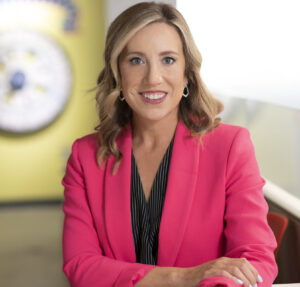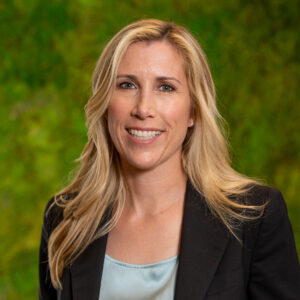How to rise to the high new expectations for communications
As the pandemic showed the importance of the comms profession—and all kinds of barriers came crashing down—here’s how to maintain momentum.

We could have seen it coming.
Many companies pulled back their marketing budgets in the early days of pandemic uncertainty and in-person event cancellation. Then the build-up that had to be spent by the end of Q4 2020 hit like a tsunami. We all hustled to make it work.
Most marketing departments and agencies got the job done from home, sometimes more productively, thus proving it could be done. So employees wanted—some nearly demanded—permanent work-from-home options. Those options are mostly still in place.
After calls for social justice roiled and inspired the country, employees and RFPs made it clear that diversity, equity & inclusion (DE&I) programs and policies were on their mind, and progress was expected. Like, yesterday. And many companies appear to be making progress.
Looking back, some of these outcomes could have been anticipated and were even welcomed—but our new normal has raised the bar in more subtle ways for communicators.
Enter the heightened expectations placed on marketing departments, agencies and, in some cases, the whole of humanity. From taking relevance to new extremes to producing content on a grander scale or working seamlessly across cultures and borders, these refinements are here to stay, and they make us all better. Here are four changes comms pros must track:
1. Relevance
The way phones serve us news and ads based on our online activity has intensified our expectations for relevant content.
Yet, relevant category expertise was always a differentiator for companies seeking employees or agencies. What’s different is the level of specificity that’s now expected—and increasingly available. When a longtime specialty chemicals client of ours needed a partner in China, two options within our network had relevant automotive experience. But one even had the specific automotive paint protection film experience the client desired.
With the world shrinking through cultivated networks and connections as close as your LinkedIn app, deep, relevant experience is available and expected.
Relevance goes beyond expertise, too. A colleague was presenting to a PR group at his alma mater, recently and he gave students 100 points to allocate to different attributes of the jobs they will soon be considering as they joined the profession. This was a generation, we thought, driven by purpose, flexibility and equality. But the group collectively assigned a significant majority of their points to salary, roles and responsibilities. The exercise is a stark reminder: Assumptions about an audience won’t drive action (in this case recruiting).
Relevance comes down to two things:
- Keep your finger on the pulse. Cultivate your network so you know where to turn for the niche expertise you might be needed to round out your own.
- Research. Finding answers can be as easy as asking the right questions.
2. Content at scale
Often, specific expertise is sought in the interest of creating meaningful content without having to fight a learning curve. Especially with limited in-person options, valuable, high-quality content has become pivotal.
This year, amid dozens of advertising copywriters and PR writers, Fahlgren Mortine hired its first content specialist. We hired our first two, in fact, and a video production manager who can go from camera to finished product.
Whether it’s the skyrocketing need for video, the unique skill of writing and curating engaging social content, drafting how-to website copy, technical white papers, or thought-leadership bylines, companies are establishing their own content studios or boosting their content scopes of work with agencies. And those who haven’t yet soon will. The ability to quickly produce meaningful content is an expectation that will only grow as control continues to shift toward content searchers and away from creators.
3. Cultural fluency
As diversity training offerings proliferated in response to the Black Lives Matter movement, we all became more mindful of differences in backgrounds and experiences, recognizing our own explicit and implicit biases. The work being done on an interpersonal level has almost immediately evolved to the campaign level.
Salter Mitchell PR in Florida has built a team of practitioners that reflects the state’s diverse, multicultural and multigenerational population and always responds to RFPs with an approach that ensures the campaign is diverse and inclusive. Heidi Otway, president of Salter Mitchell PR, says most organizations are receptive, and since 2020, they are having more conversations with clients about this.
In my circle, people are thinking more deeply about interactions across all divides, the most apparent of which, operating in a global network, is culture.
Malcolm Gladwell famously wrote in “Outliers” that a flight crew’s country of origin could materially affect safety. Hierarchical, highly deferential cultures can lead to co-pilots and crew members hesitating to question judgments or point out mistakes of superiors, such as the pilot or the air traffic controllers.
Adjusting to cultural differences is less critical when communicating via Zoom than in a cockpit, but the differences are no less real. It’s not just about showing respect for colleagues of all cultures; it’s about working effectively together.
The book “Kiss, Bow or Shake Hands,” organized by country, helps me understand where cultural differences may become challenges in preparation for working with international partners. For instance, most of us in the United States have been coached to deliver feedback in the “sandwich” format—positive, negative, positive—to increase receptiveness. For our German counterparts, the book advises, that’s mixed messaging that will be disregarded as meaningless nonsense. The lesson, if your audience is German: Get to the point as directly and simply as possible, and don’t cushion your message.
The Global Fluency Institute offers a quiz that illuminates just some of these nuances. For those who don’t have the privilege of attending Global Fluency Training, simply being aware of the dimensions of culture can be helpful.
4. Global reach
A virus originating in China became a major disruptor in the lives of people the world over within months. It’s a firm example of globalization, and the interconnection that’s been growing and flourishing for years.
Our agency went from offering no global capabilities a decade ago—and seeing no need—to joining and becoming deeply involved with IPREX, the global communication network, and winning more than $3 million in business we wouldn’t have been able to pitch without the global capabilities IPREX brings.
My friend Anu Gupta in Singapore has experienced the same phenomenon, even on a regional level. She and the team saw the need to expand Asia PR Werkz’s footprint into Indonesia (culturally different but with strong trade and business ties to Singapore). The team also regularly works on behalf of clients with partners among Southeast Asia’s other largest, internet-savvy economies: Malaysia, the Philippines, Vietnam and Thailand. The expectation of operating across countries has led to agency growth and brag-worthy client outcomes.
It is absolutely possible to imagine cultivating a global network organically and independently, but for us, joining an established network that vets partners was the simpler choice. Working with your agency and their global network also can be a cost-effective and scalable boutique-type experience, delivering precisely the expertise and reach needed.
A world of expectation
I told my friend Ann-Marie in Cork, Ireland, that something was fabulous, a phrase I must use 10 times a day. She chuckled at my American enthusiasm. For Americans, she said, “good” things are almost always “awesome!”
But if the last 19 months have brought us closer together, across cultures and geographies, and reminded us of the power of cultivating our networks—online, if not in person—then I say, without a hint of overstatement: That’s awesome.
Julie Exner is global president of IPREX and senior vice president at Fahlgren Mortine. IPREX is a global platform where clients and partner agencies find resources from around the world to deliver on their global communications needs. In her role at Fahlgren Mortine, Exner provides strategic counsel and campaign planning for business-to-business and technology clients.






